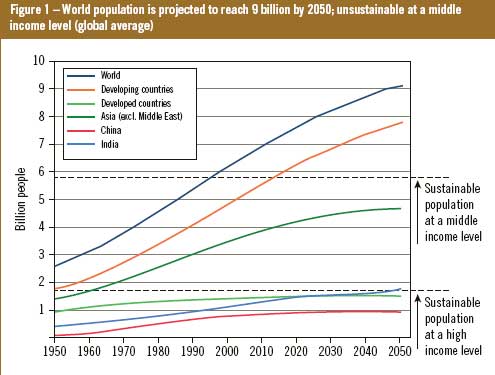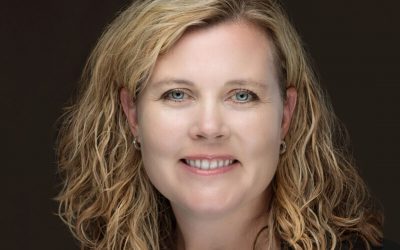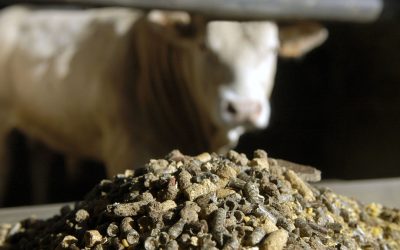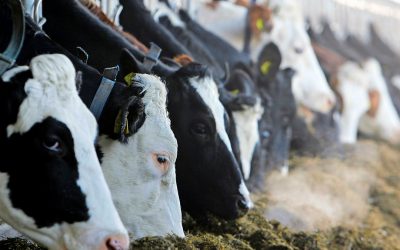Sustainability is not a buzzword for DSM

Sustainable agriculture is becoming more and more important as we realise that resources are ending. We have to preserve what we have and use it as efficiently as possible. Is this going to nibble on profitability, or not? DSM made sustainability a business driver within the company, caring for people, the planet and securing profit.
By Dick Ziggers
Whenever there is a presentation on environmental and sustainability issues, the topic of nine billion people on our planet in 2050 with the dilemma of how to feed them is always cited. Parties looking to profit from this situation aim to grow genetically modified crops and food importing countries try to secure future needs by buying land for growing crops in African countries. In emerging economies there is an increased purchasing power by a growing middle class. People move to the cities, which double in population and cause exploding consumption levels of food and energy (Figure 1).
“We live in a resource-constrained world,” says Fokko Wientjes, director of sustainability at DSM. “There is scarcity of food, land, water, materials, energy. We see a further divide between major economies and least-developed countries.” Wientjes also distinguishes three dominant trends: “We see a shift in global wealth going south. Climate and energy have become key topics and there is a health and wellness trend – people want to grow old.” To be able to operate in this changing environment DSM has changed its focus. With the slogan “DSM in motion: driving focused growth” the shift from an era of intensive portfolio transformation to a strategy of maximising sustainable and profitable growth of the ‘new’ DSM was marked. The current businesses compose the ‘new core’ of DSM in Life Sciences and Materials Sciences. To do so the company has a Triple P-approach: Planet, people and profit.
The planet
If there is no change the world’s population will further over exploit the global eco-system. Water shortages occur through pollution and over-consumption, there is an increasing volume of waste and persistent, bio-accumulating and toxic materials (PBTs). Next to that climate changes cause harvest failures and biodiversity is diminishing. A change of attitude is required to counteract these threats. At DSM they see it as an opportunity for further growth. The management recognised the need to change and started a transformation of the company regarding sustainability from an internally focused business to a completely externally focused enterprise. “We were compliance driven. But in our value chain we now express an opportunity seeking behaviour and value based approach. Sustainability at first was a responsibility, but now it has become a business driver,” says Michael Matthes, director of safety, health and environment.
To achieve this, DSM is looking for yield improvement when manufacturing products, Matthes explains, meaning less energy use and fewer emissions. “We use a Six Sigma* approach: What impact does the change of a product have on the process and the environment?”
*Six Sigma is a methodology that provides businesses with the tools to improve the capability of their business processes. This increase in performance and decrease in process variation leads to defect reduction and vast improvement in profits, employee morale and quality of product.
DSM companyDSM has annual net sales of about €8 billion and employs some 22,700 people worldwide. The company is headquartered in the Netherlands, with locations on five continents. DSM is listed on Euronext Amsterdam. The majority of the Nutritional Products (vitamins, colorants, acids, perfume intermediates, animal feed and food/pharma formulations) are produced at the plant in Sisseln, Switzerland. With 11 production plants on one location it is among others the largest vitamin A en E production unit in the world. In total about 110 different products are made, which are of 50 different vitamin formulations. The plant also has an enormous waste water treatment unit. This enables the company to discharge its effluent in the nearby Rhine river. |
This policy has led to the development of “Eco+” solutions, which are superior products and services that have more ecological benefits than the mainstream competing solutions. “Our Eco+ solutions are biotechnological products like yeast extracts, enzymes, cultures and preservatives. They contribute to a lower Eco footprint of food in terms of energy reduction or CO2 reduction, shorter processes, higher process yields or replacement of traditional ingredients.” As an example Matthes shows the CO2 reduction that can be achieved when using 1 kg of enzyme. In animal feed this equals a reduction of 30 kg CO2, in bioethanol 150 kg, in food 200 kg, in oil and fats 1,300 kg, and in cereals a reduction of as much as 3,800 kg CO2 can be achieved. When manufacturing the enzyme, one has to take into account that production of the enzyme emits less CO2 than the actual use of the enzyme.
The ecological benefit can be created at any stage of the lifecycle – from the raw material, manufacturing, use, to potential re-use and end-of-life disposal. Matthes says that DSM’s product portfolio is evaluated in terms of ecological performance, and products that are contributing to more eco-efficient solutions than average will be identified. Whenever applicable, the reference has been the current mainstream of products and services. To further carry out the message the DSM policy is not restricted to its own businesses. “Progress is made not only in managing the environmental impact of our own operations. By applying a ‘Code of Conduct’ for suppliers, which is based on DSM’s values, we also manage the value chain in which we are active,” Matthes says.
The people
“Sustainability is much more than a business differentiator, or even a competitive advantage,” says Oswaldo da Costa e Silva, senior director of the Nutrition Improvement Program. “It is the way we live daily at DSM.” He confirms that people are essential for any development. “A society can only grow and develop with healthy, productive people as much as a company can only stand competition and grow with healthy, productive employees. We have a global network of highly committed professionals and experts all over the world. We have the research and the networks of key opinion leaders and we are able to offer products and solutions that match the specific nutritional requirements of people.”
What is interesting in this is, that Da Costa e Silva says that there is a highly promising and profitable return-of- investment. “The 2008 Copenhagen Consensus, comprised of a group of eminent economists, concluded that of 30 specific solutions to combat some of the world’s most pressing problems, addressing micronutrient deficiency amongst children would be the single best investment. Every US$1 spent is estimated to produce US$17 in return through reduced health spending and improved economic output. This is supported by a study in Guatemala, which showed that a fortified complementary food program provided to boys up until the age of three, resulted in adult earning wages that were 46% higher than the control group.”
In the human food sector DSM is partnering with governments, organisations and the private sector to improve nutrition for people in developing countries. The key task is to develop sustainable business models, especially in food fortification. “Food fortification is affordable, because the price of the added vitamins and minerals is so low that there is no need to increase the sales price of the staple food,” adds Da Costa e Silva. “It is easy to fortify food, it’s effective and people do not have to change their dietary habits.”
Agrofood is lagging behind The agrofood sectors are lagging behind in sustainability efforts, argues Lara Yakob, senior engagement specialist at asset management firm Robeco with a controlled fund of approx. €145 billion. “The agrofood sector needs to capitalise on sustainability and incorporate it into their business,” she says. “Sustainability is a matter of reputation. Robeco stimulates companies to analyse their business on sustainability issues such as risk-return on a long term basis and brand protection.” Yakob recognises that there are external factors that are difficult to value and form a risk, e.g. CO2, water and land. But she says that “sustainability should be a key driver in your business.” And for advice: Make retailers more accountable for their procurement policy. |
The profit
DSM’s Profit+ objective is to translate innovative sustainable solutions into strong value-creating businesses. To capture the extraordinary profit potential of Triple P for DSM’s business, the company is embedding it fully into its organisation, reporting and activities. For example, Triple P and stakeholder engagement (connectivity) will be built into the business planning and innovation processes and quality review management for all businesses.
Sustainability activities need to be market driven, explains Wientjes further. This requires a step change from securing value (robust systems and processes) to creating value (meeting challenges of global society – doing well by doing good). In the field of sustainability, a number of ambitious targets and aspirations for 2011-2015 have been set by the DSM management. “We want a top ranking in the Dow Jones Sustainability Index. We require that at least 80% of our products in the innovation pipeline are ECO+ and ECO+ products as percentage of running business should increase from about 34% toward 50%. Furthermore, we strive for a energy consumption reduction of 20% annually. Greenhouse gas emissions should reduce by about 3.5% per year over a time period of three to five years. Satisfaction as measured in the employee engagement survey should be over 68%. We’ll define further diversity and People+ aspirations during 2011.”
“In sustainability, DSM’s ambition is to go to the next level: from responsibility to a business driver,” Wientjes continues. “We believe sustainability will be the key differentiator and value driver over the coming decades and that the company is well positioned to capture new value-creating opportunities.”











